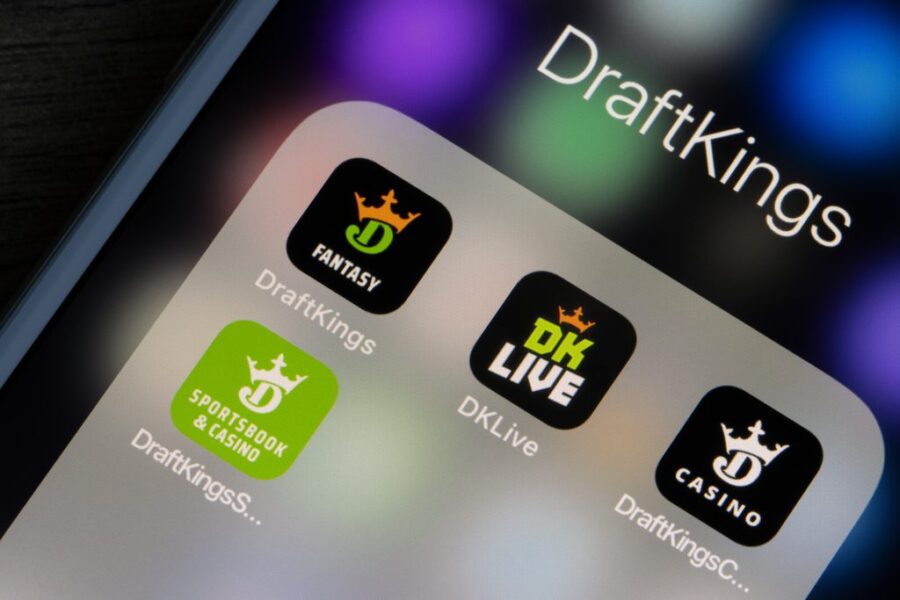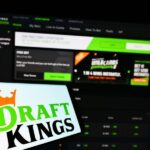DraftKings’ Jason Robins suggests prediction markets could drive igaming regulation

DraftKings Chief Executive Jason Robins has said predictions markets could encourage the legalization of sports wagering and igaming in more US states.
In the company’s third quarter 2025 earnings letter, Robins highlighted plans to launch DraftKings Predictions in the coming months, describing it as a “significant incremental opportunity” for the company.
“As growth in predictions continues, this may also motivate more states to legalize online sports betting and igaming with reasonable regulation and taxation,” Robins hypothesized in the letter.
DraftKings Predictions will complement the company’s existing sportsbook offering. Robins noted that the product will launch initially in US states where DraftKings does not currently offer a sportsbook.
“We plan to focus on the states where we do not offer sportsbook, which also is where we believe the vast majority of the financial opportunity exists,” he said.
The Chief Executive claimed that the launch could expand DraftKings’ total addressable market by entering US states through sports event contracts, helping to unlock new revenue streams and customer bases.
He added that almost half of the US population currently lacks access to legal online sports betting, while several other companies already offer federally regulated prediction products nationwide.
Robins said that DraftKings’ expertise in customer acquisition, product development, and regulatory compliance, alongside its partnerships with ESPN and NBCUniversal, positions the company to compete successfully in the predictions markets space.
DraftKings also recently reported third quarter revenue of US$1.1 billion, representing an increase of 4%, or US$49 million.
Verticals:
Sectors:
Topics:
Dig Deeper
The Backstory
From monitoring to a market push
DraftKings’ shift from watching to wading into prediction markets has been swift. In the second quarter, Chief Executive Jason Robins told investors the company would “monitor” the space, weighing regulatory and partner considerations rather than rushing in. He emphasized being early matters, but not necessarily first. The comments came as DraftKings posted record results and stressed it would study how rivals fare before committing. That cautious posture is detailed in an investor call recap, as second quarter yields record revenue, DraftKings Chief Executive Jason Robins pledges to monitor prediction markets.
By fall, the calculus changed. DraftKings mapped a product plan to enter states where its sportsbook lacks access and to use prediction markets to broaden its total addressable market. The company framed the opportunity as complementary to sports betting, with a goal of opening new customer funnels where about half of the U.S. population still lacks legal online wagering. The pivot aligns with a broader industry thesis: event contracts can be regulated under federal derivatives law, potentially sidestepping state-by-state gambling rules while expanding reach. That approach, however, puts DraftKings in the middle of a regulatory divide now taking shape.
Buying a foothold in federally regulated markets
The strategic turn gained teeth with a deal. DraftKings acquired Railbird Technologies and its federally licensed Railbird Exchange, a designated market under the Commodity Futures Trading Commission. The move brings a team and exchange-grade technology in-house and sets up DraftKings to aggregate multiple marketplaces under a single mobile front end. The company says that could create “advantaged economics” and product differentiation over time. The details are in DraftKings acquires Railbird Technologies, which also outlines plans for a DraftKings Predictions app to trade contracts on outcomes across finance, culture and entertainment.
The acquisition signals a build-versus-partner decision and positions DraftKings to move quickly should federal oversight remain intact. It also underscores a competitive race to own distribution and liquidity. Railbird gives DraftKings a bridge between its sportsbook user base and a product governed by a different regulator, with different limits and tax implications. If the rails hold, DraftKings can funnel customers into new markets with fewer geographic constraints than traditional sports betting.
State-federal friction intensifies
The biggest risk sits at the intersection of state gambling authorities and the CFTC. Several states have moved to curtail or question prediction markets that list sports event contracts. The tension is now spilling into court. Kalshi, one of the sector’s higher profile operators, sued the Maryland Lottery and Gaming Control Commission after a cease-and-desist letter. Kalshi argues its sports contracts are peer-to-peer swaps under CFTC jurisdiction, not gambling products subject to state law, and won a temporary injunction in Nevada that could clarify the model further. The legal fight is outlined in Prediction markets platform Kalshi files lawsuit in Maryland.
For DraftKings, the same fault lines that have slowed sportsbook legalization could resurface in a new guise. A federal preemption win for prediction markets would support the company’s plan to target non-sportsbook states. A loss would tighten the patchwork and push operators back toward state-by-state licensing and tax regimes. Either way, DraftKings must navigate relationships with state regulators, tribes and existing partners while it experiments with a product that is similar to sports betting but overseen elsewhere.
Leagues press integrity concerns in Washington
Major leagues are also weighing in. The NBA asked the CFTC to scrutinize the growth of sports prediction contracts, warning that rapid expansion from season-long outcomes to player props and officiating-adjacent markets could threaten integrity. The league drew a line between its support for regulated sportsbooks and its worries over federally supervised derivatives venues that lack sports-specific oversight. That letter is detailed in NBA expresses concerns over sports prediction integrity to CFTC.
The NBA’s position matters for DraftKings, which is an official betting partner and relies on league cooperation for data, marketing and product features. If the CFTC imposes tighter guardrails or carves out certain sports markets, DraftKings may have to tilt its new app toward non-sports categories or limit the riskiest markets. Conversely, if the commission keeps a broad remit, leagues could push for negotiated safeguards, adding compliance costs but preserving growth.
Global ambitions reshape the competitive map
While U.S. rules evolve, competitors are looking abroad. Robinhood has begun talks with overseas regulators, including the U.K.’s Financial Conduct Authority, about how to structure prediction markets under local frameworks. In many countries these products fall under gambling oversight, not derivatives law. Robinhood says it will avoid controversial listings and keep the product compliant as it scales, attracted by a new revenue stream that has already reached hundreds of millions of dollars. The expansion plans are covered in Robinhood eyes overseas expansion for prediction markets.
International moves raise the stakes for DraftKings’ timing. A domestic-first strategy with a federally regulated product could deliver speed, but rivals chasing global liquidity may build brand advantage and category norms. If prediction markets become a cross-border product with social and trading features, the winner may be the platform that best blends regulation, user experience and market depth, not the first to launch.
What the economics and policy tradeoffs mean
DraftKings’ bet on prediction markets links directly to taxes, margins and growth optionality. On a recent call, Robins flagged that rising state taxes, such as Illinois’ per-bet levy, are pressuring sportsbook economics and that the company is pursuing cost relief through partner renegotiations and payment optimization. Those remarks, alongside a discussion of AI automation and the pros and cons of being early in new categories, are in the second quarter investor discussion.
If prediction markets let DraftKings reach customers in non-sportsbook states under a federal framework, the company can diversify revenue away from the most heavily taxed jurisdictions. That could also create a political feedback loop. As event contracts gain mainstream traction under CFTC oversight, states could face pressure to harmonize or expand their own regimes for sports betting and igaming to keep tax revenue onshore. But the same mechanism could provoke a harder state crackdown if regulators and leagues see integrity risks or consumer protection gaps.
The bottom line: DraftKings’ entry is a calculated wager that federal guardrails, technology leverage and brand scale can open a new on-ramp to legal wagering. The path runs through Washington courtrooms and commission meetings as much as product road maps. What happens next will determine whether prediction markets become a bridge to broader legalization or another regulatory cul-de-sac with uneven rules and fragmented demand.








